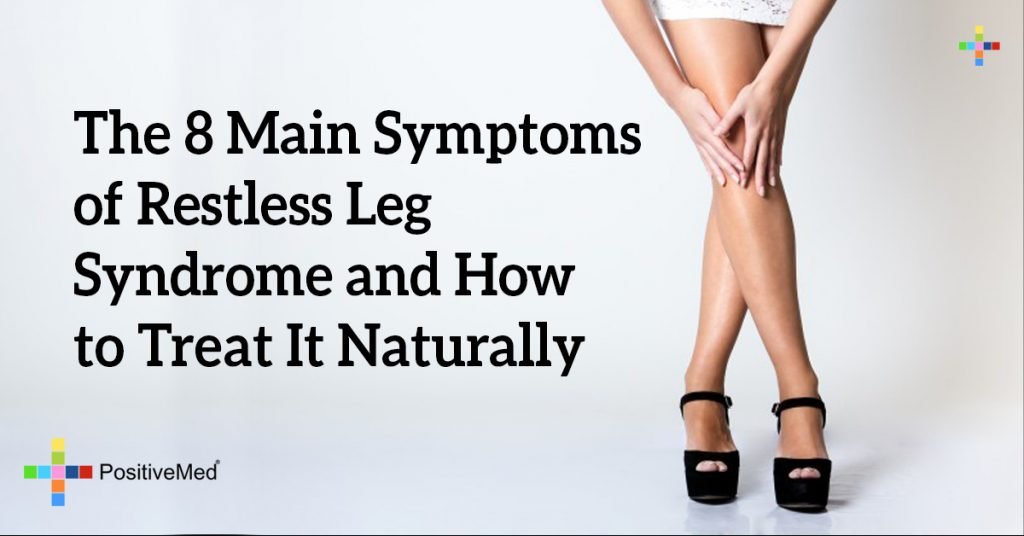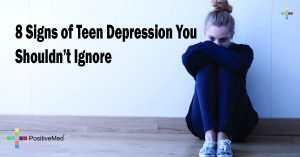
The 8 Main Symptoms of Restless Leg Syndrome and How to Treat It Naturally
One of the meanings of the phrase, “Shake a leg” is to rouse oneself from sleep, and get out of bed. That’s what happens exactly to people with Restless Leg Syndrome (RLS). RLS (also know as Willis-Ekbom disease or WED) is a condition that causes an irresistible desire to move one’s legs.

What is Restless Leg Syndrome (RLS/WED)?
RLS is a disturbance in of part of the nervous system. Because it routinely interferes with a person’s sleep, it’s also acknowledged as a sleep disorder.
Who Gets RLS?
This disorder happens more frequently in women than men, and may occur at any age. Those severely affected are the middle-aged and older.
What Causes RLS/WED?
In most cases, the cause is unknown. Researchers believe the condition may be caused by an imbalance of the brain chemical dopamine. Dopamine is involved in the control of muscle movement. Almost 50 percent of the people who have the condition also have a family member with the disease; so it’s suspected that genetics is involved. Other factors that are speculated to cause or worsen RLS, because RLS often occurs with them include:
• Chronic diseases and conditions including iron deficiency, kidney failure, and diabetes. Treating these conditions frequently give a measure of relief from RLS symptoms.
RELATED ARTICLE: 15 Signs You May Have Iron Deficiency And What To Do About It
• Certain types of medications that include antidepressants, antipsychotic drugs, and cold and allergy medications.
• Pregnancy. Some women experience RLS, especially during the last trimester. Usually within a month after delivery the symptoms disappear.
• Alcohol use. Stopping alcohol use may ease symptoms.
• Sleep deprivation. Improving sleep may eliminate the symptoms.
How is Restless Leg Syndrome Diagnosed?
No medical tests are available to diagnose RLS. Instead, the diagnosis is based on the person’s symptoms and family history of matching symptoms, and medical fitness. Blood tests and additional exams are also done to rule out other conditions.
What are the Symptoms?
People with this syndrome describe the symptoms as unpleasant feelings in both legs and both feet. The feelings are characterized as:
• Aching
• Crawling
• Creeping
• Itching
• “Pins and needles.”
• Pulling
• Throbbing
• Indescribable
These symptoms usually occur during the evening or at night. For many people, the symptoms are so severe that their sleep is disrupted during the night. The sensations typically are triggered after sitting or lying down for a lengthy amount of time, such as in an airplane or at the movies. The sensations ease with movements, such as stretching, wiggling the legs, pacing or walking.
What Non-drug Treatments are Available for Restless Leg Syndrome?
Lifestyle changes
1) Start a regular exercise program. Moderate and regular exercise may relieve symptoms. Don’t work out too intensely or too late in the day; this could worsen the symptoms.
RELATED ARTICLE: Restless Legs
Establishing a regular sleep pattern helps to eliminate fatigue because being tired tends to increase RLS/WED symptoms. Develop the habit of going to bed and getting up at the same time each day. Decreasing or eliminating caffeine, alcohol, and tobacco is helpful for some people.
2) Massaging the legs while soaking is a warm bath helps to relax the muscles.
3) Applying warm packs or cool packs may decrease the uncomfortable leg sensations.
4) Because stress can intensify RLS/WED, relaxation techniques, such as yoga, or meditation, are useful.
Even though restless leg syndrome has no cure yet, there are effective non-drug treatments that help to control the symptoms. If you think you may be experiencing restless leg syndrome, consider seeing your doctor for an evaluation. In the meantime, you can use some of the techniques mentioned to see if they work for you.





